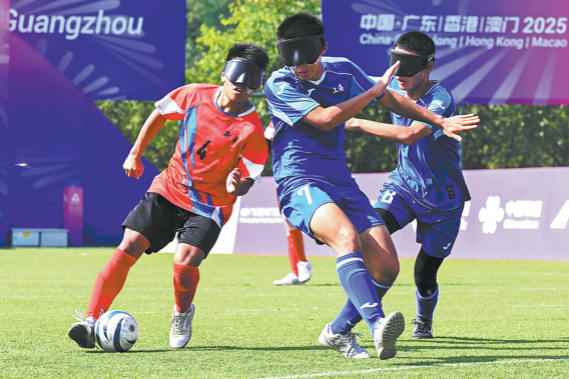Time to write a new chapter


In keeping with the demands of the new normal, the 20th Hong Kong International Literary Festival, which kicked off yesterday, is now a hybrid of live and online events. Elizabeth Kerr reports.
As COVID-19 became a global phenomenon in March, the BBC stated book sales were surging (children's books in particular spiked 234 percent). A month later tech magazine Wired noted online book sales rose across the board. In October international trade journal Publishers Weekly reported we were reading while in lockdown: Book sales are up 6.4 per cent this year.
That's good news for the Hong Kong International Literary Festival, which kicked off yesterday and features over 120 writers from around the world, including Kevin Kwan (Crazy Rich Asians), Jhumpa Lahiri (The Lowland), and local authors Dorothy Tse (Snow and Shadow), and Chan Koonchung (The Fat Years). Fittingly the festival's theme is "Present Tense, Future Perfect" — interrogating how the world is responding to political, health, environmental and social upheaval triggered by the pandemic and making projections as to what lies ahead.

For some years the publishing industry has been wrestling with disruptive technologies and rising demands for better representation. With an eye to responding to such concerns, HKILF handed the reins to new Executive Director Catherine Platt in 2020. Originally from the United Kingdom, Platt co-founded New Jersey's Montclair Literary Festival after four years running the Chengdu chapter of China's Bookworm Literary Festival, where she was tasked with widening the audience base. She is trying to pull off a similar feat at HKILF.
"One of my goals is to make HKILF more accessible, more representative, more inclusive and more flexible. In some ways the situation this year has helped with that."
The situation, of course, is COVID-19, which has compelled the switch from live to digital in many performance-based cultural programs. This year the 75-event festival is a hybrid of live and online shows, part of an effort to increase its digital footprint and boost engagement. Nominal ticket prices, free events, events in multiple languages with simultaneous interpretation at some and subtitled versions of online events made available 24 hours after livestreaming are initiatives designed to "enable more people to hear authors they love and engage with new books, ideas and conversations," says Platt.

Digital reads
The highly mixed nature of this year's HKILF — including the multiplicity of platforms on which it could be accessed — reflects the changing face of publishing. Today e-books, audio books and Instagram-style short form storytelling are accepted, often preferred, ways of consuming literature.
"The more the merrier," says Hong Kong-based writer Cameron Dueck, whose travel books (Menno Moto) are as much anthropological tomes as travelogues. "I think new formats bring in more new readers rather than dilute the existing market. Certainly that's the case for audio books."
Platt agrees, seeing new formats and outlets as not only democratizing, but as a big part of the future of publishing. "There are so many alternatives to the book these days. There are multiple formats and ways to share content, so people are reading more, even if it isn't literature in the traditional sense," she says. Taiwanese-American author Tiffany Huang's Spill Stories — a digital repository of personal accounts contributed by more than 100 women of color — is a good example. It will be in the spotlight at a session titled "Zines, Memes and Books in the Digital Age" in HKILF.
The threat to books is even more marginal in Asia, which is ahead of the digitalization and tech adoption curve, according to Sri Lankan-born, Hong Kong-bred journalist, author and HKILF co-founder Nury Vittachi (The Witchunters). "By 2006, the most popular stories in China and Japan were digital tales — and this was before the iPhone or Kindle were released."
Dueck, who is part of an HKILF panel called "The Future of Travel Writing", is not too worried about competition from the 30-second TikTok story either.
"They're different things. The Instagram or TikTok imagery may have a sexy appeal that is harder to showcase in a long article or book, but it can't capture the nuances, stories, emotions and history of a place in the same way as long-form writing," he argues. Since people are likely to travel less frequently post-COVID-19, it "might make the instant imagery of social media less relevant, as more people pick up a good book that describes the culture of the place they're heading to."

Diversity matters
Representation is the watchword these days, be it in the film industry or publishing. For example, young adult fiction has been slammed for its dearth of characters and writers of color. As recently as 2015, 85 percent of American YA and kid lit featured white protagonists according to research in The Journal of Language Arts. It's 90 percent in the UK.
"I don't think you have to look that hard for other voices. So many people are writing in English now so there's plenty to choose from. But you have to be conscious in your programing," says Platt. "One of the things I am trying to do … is to gradually bring more local authors into the festival. It has always been a predominantly English-language festival, but we would like to expand our audience locally and regionally to reach more Chinese speakers."
Of HKILF's 120-plus speakers this year, over 50 are Hong Kong natives or residents — from Southeast Asia, India, Democratic Republic of Congo, the Chinese Mainland, Taiwan and Nigeria. They come from across the sexuality spectrum.
Spill Stories contributor and DRC-born Harmony Ilunga, who sits on the "How to Talk about Race" panel, sees representation as important to empathy, something she was hard-pressed to find as a refugee in Hong Kong.
"Even local people have an issue with diversity," she says, citing the lack of understanding she had faced upon arrival to Hong Kong as a 10-year-old. Better representation can take the edge off adherance to rigid beauty standards and fetishization of blackness, she feels. "I'm glad people are willing to have a conversation about diversity now, instead of rejecting it outright."

Vittachi says Asian writers themselves should take part of the blame for their low visibility on the world stage. "It's our job to write stuff that people will read around the world. But there are many reasons why we find it difficult, from our education systems, to our lack of editors and literary agents." Editors and agents are considered the gatekeepers to getting published, and the majority is white (admittedly, no one keeps official statistics). Vittachi, who will run a workshop entitled "How to Get Published", singles out sci-fi and the genre's overwhelmingly white male future as particularly grating.
Dueck, however, feels better representation has become smart business. "It seems to me that stories written by people of color, minorities and indigenous peoples are in high demand now."
It's a welcome trend, for ultimately representation underscores the fundamental reason we still read.
If you go
Hong Kong International Literary Festival
Dates: Until Nov 15
Various venues in Hong Kong and online events
- Global leaders plant Juncao grass, symbolize China ties
- China issues wanted notices of 100 telecom fraud fugitives
- Top courts demand severe penalties in grassroots corruption cases
- China launches new remote sensing satellite
- China targets 100 fugitives tied to cross-border fraud rings
- Former executive of Chinese financial firm executed for bribery



































